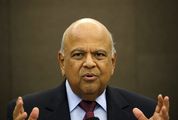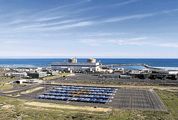AFTER meeting business leaders on Tuesday, President Jacob Zuma is likely to speak much about forging a new spirit of co-operation between the government and business.
This is particularly so in respect of infrastructure investment at a time when the government’s balance sheet is under strain from sovereign debt and guarantees to cash-strapped state entities.
What Mr Zuma is unlikely to mention in his speech at the opening of Parliament on Thursday, though, is the destructive effect of the capture of state institutions by corrupt, private business interests. Even thornier for the president will be the coincidence of this phenomenon and his own relationships, for instance with the Gupta family.
There is a growing belief that Mr Zuma himself has been so captured by private interests that critical decisions of state serve their interests rather than those of the people of SA.
These are not new accusations against holders of political office, as they were also contained in former African National Congress secretary-general Kgalema Motlanthe’s organisational report to the party’s 52nd national conference in Polokwane in 2007.
Mr Motlanthe’s report went further, saying that in many instances, capital projects by state entities are conceived entirely for the purposes of providing opportunities for illicit gain by private interests linked to members. These interests and cronies have become so powerful that they are known to influence appointments to boards and the executives of state-owned enterprises. Lately, it has been claimed that ministerial appointments are similarly influenced.
This pattern of capture is not isolated to national government, but is also prevalent in the provinces and municipalities. It is extremely difficult for honest state officials to perform their duties without hindrance either from politicians, their proxies, or external forces acting with impunity.
As the economic and fiscal situation deteriorates, it is necessary that the president announces concrete steps to deal with the capture of state institutions that makes such rampant corruption possible. No agreement by the government with either business or organised labour will have any effect if the levers of state are controlled by outsiders who have no interest in rescuing the economy.
Pervasive graft comes at a huge cost — public funds are siphoned off by corrupt individuals and economic opportunities are lost due to the squandering of resources. This is partly to blame for inadequate services and the malaise in the economy.
An increasing number of people are losing trust in state institutions, such as law enforcement agencies and regulatory bodies, because there is a widespread belief that their decisions are being improperly influenced. Such beliefs can be reversed only if people see a consistency between what leaders such as Mr Zuma say and do.
Precisely because the president is likely to warn that stern action will be taken against corruption and waste, such statements are made hollow because the concomitant political action is not taken to deal with the scourge.
The empty words must stop and politicians who are found to be colluding with businesses to rob the state must be dealt with harshly — even if they occupy high office.
It is a concern that so far, notwithstanding the president’s exaltations, corruption has become worse. Either state organs meant to fight it are ineffective, or the president is not taken seriously.
Whatever the reasons, it is time he publicly acknowledged that the success of the plans and wishes he outlines in his state of the nation address will succeed only if there is a serious fight against corruption. SA’s future depends on that fight being won.

Jacob Zuma. Picture: AFP PHOTO/GIANLUIGI GUERCIA
AFTER meeting business leaders on Tuesday, President Jacob Zuma is likely to speak much about forging a new spirit of co-operation between the government and business.
This is particularly so in respect of infrastructure investment at a time when the government’s balance sheet is under strain from sovereign debt and guarantees to cash-strapped state entities.
What Mr Zuma is unlikely to mention in his speech at the opening of Parliament on Thursday, though, is the destructive effect of the capture of state institutions by corrupt, private business interests. Even thornier for the president will be the coincidence of this phenomenon and his own relationships, for instance with the Gupta family.
There is a growing belief that Mr Zuma himself has been so captured by private interests that critical decisions of state serve their interests rather than those of the people of SA.
These are not new accusations against holders of political office, as they were also contained in former African National Congress secretary-general Kgalema Motlanthe’s organisational report to the party’s 52nd national conference in Polokwane in 2007.
Mr Motlanthe’s report went further, saying that in many instances, capital projects by state entities are conceived entirely for the purposes of providing opportunities for illicit gain by private interests linked to members. These interests and cronies have become so powerful that they are known to influence appointments to boards and the executives of state-owned enterprises. Lately, it has been claimed that ministerial appointments are similarly influenced.
This pattern of capture is not isolated to national government, but is also prevalent in the provinces and municipalities. It is extremely difficult for honest state officials to perform their duties without hindrance either from politicians, their proxies, or external forces acting with impunity.
As the economic and fiscal situation deteriorates, it is necessary that the president announces concrete steps to deal with the capture of state institutions that makes such rampant corruption possible. No agreement by the government with either business or organised labour will have any effect if the levers of state are controlled by outsiders who have no interest in rescuing the economy.
Pervasive graft comes at a huge cost — public funds are siphoned off by corrupt individuals and economic opportunities are lost due to the squandering of resources. This is partly to blame for inadequate services and the malaise in the economy.
An increasing number of people are losing trust in state institutions, such as law enforcement agencies and regulatory bodies, because there is a widespread belief that their decisions are being improperly influenced. Such beliefs can be reversed only if people see a consistency between what leaders such as Mr Zuma say and do.
Precisely because the president is likely to warn that stern action will be taken against corruption and waste, such statements are made hollow because the concomitant political action is not taken to deal with the scourge.
The empty words must stop and politicians who are found to be colluding with businesses to rob the state must be dealt with harshly — even if they occupy high office.
It is a concern that so far, notwithstanding the president’s exaltations, corruption has become worse. Either state organs meant to fight it are ineffective, or the president is not taken seriously.
Whatever the reasons, it is time he publicly acknowledged that the success of the plans and wishes he outlines in his state of the nation address will succeed only if there is a serious fight against corruption. SA’s future depends on that fight being won.





















Change: -1.00%
Change: -1.00%
Change: -0.53%
Change: -0.60%
Change: -3.09%
Data supplied by Profile Data
Change: -0.64%
Change: 0.09%
Change: -1.00%
Change: 0.00%
Change: -0.13%
Data supplied by Profile Data
Change: 2.49%
Change: 1.13%
Change: 2.13%
Change: 2.94%
Change: 1.30%
Data supplied by Profile Data
Change: -0.06%
Change: 0.00%
Change: -0.46%
Change: -0.53%
Change: -3.02%
Data supplied by Profile Data